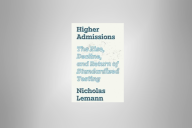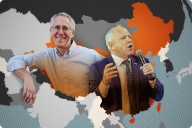You have /5 articles left.
Sign up for a free account or log in.
TORONTO -- In both India and China, developments in higher education receive substantial press attention, said panelists at a meeting here. But that attention doesn't necessarily mean that the right issues are being explored, they said.
"The question is how the media can move beyond the elites," said Rahul Choudaha, director of research and strategic development at World Education Services. Choudaha spoke here at Worldviews 2013: Global Trends in Media and Higher Education, of which Inside Higher Ed was one of the organizing groups.
In both India and China, readers are tremendously interested in higher education, but much of the coverage focuses on what Choudaha termed "the 1 percent," those who go to the best Western or local universities.
Coverage in China has seen a notable improvement in the last 10 or so years, said Zha Qiang, associate professor of education at York University. Through the 1980s, media in China acted primarily as "a propaganda vehicle" for the state when it came to higher education. More recently, however, he said that the Chinese press had focused attention on issues such as plagiarism, even though this reporting casts some academics and institutions in a negative light. (He acknowledged, as did other members of the panel, that the Chinese press has not focused much on what many termed a key issue for higher education in the country: the lack of academic freedom.)
Maria Mathai, who runs a consulting service on Canadian-Indian educational ties, said that the Indian press has added significantly to higher education coverage in the last decade. The growth of private higher education, she said, led to advertising, which in turn prompted "every major newspaper to create an education supplement."
Coverage focuses not on policy but on "enrollment options," with an emphasis on helping those with the most options. Important issues in Indian higher education are ignored, she said.
Philip G. Altbach, director of the Center for International Higher Education at Boston College (and an Inside Higher Ed blogger) said that reporters in India and China aren't helped by the sometimes gushing way the Western press covers those countries' universities. "Both universities have better press in Western countries than they do at home," he said. There are constant articles about China become "a world academic power," without raising questions about what's missing (such as academic freedom).
"We need to be more critical of these countries," he said.
One topic on which the Indian press is effusive is the success of the Indian diaspora in American higher education.
Mathai said that articles about Indian-American business deans or university presidents in the Untied States are hugely popular in India. "It's the dream, the dream of going [abroad] and pulling yourself up," she said.
"If an Indian-American wins a spelling bee, it's the front pages all over India."








